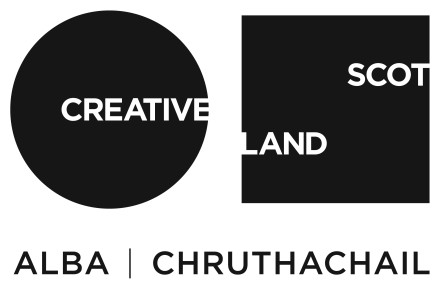Food Ecologies is a pilot residency exchange programme between Scotland and Sweden, and a partnership between Cove Park, IASPIS, the Swedish Arts Grants Committee’s international Programme for Visual and Applied Arts, and Linnaeus University. The project was co-founded by IASPIS and British Council Architecture Design Fashion through its Circular Cultures programme.
The residencies are aimed at practitioners and researchers based in the UK and Sweden working around the politics and economics of food, with a focus upon design to develop and implement just, circular and sustainable practices.
We are pleased to announce that the residency for the UK-based practitioners, which will take place at Linnaeus University, has been awarded to Studio Hotmess, a collaboration between Charlotte Moore and Maria Saeki, working across art, performance, and design. Cove Park will host the Stockholm-based food activist and designer Una Hallgrímsdóttir. Both residencies will take place later this year and we look forward to working with everyone involved over the coming months.
Artists’ Biographies
Una Hallgrímsdóttir (born Reykjavík) is a chef and designer based in Stockholm. Her work addresses cooking as design practice, exploring the area of food and eating with a creative and critical approach. Una holds a bachelor’s degree from Linnæus University’s Design+Change program. During her studies in Växjö, Sweden she co-founded The Feminist Farmers, a collective project exploring resilient and regenerative farming practices in the local food system. She has catered and held multiple conceptual eating events and workshops which create space for questioning and re-imagining unsustainable eating behaviours for the better.
Studio Hotmess: Charlotte Moore & Maria Saeki
Charlotte Moore is a multi-disciplinary designer working in the field of architecture. Her work interweaves forms of specific botanical design and vernacular earth research into accessible outcomes through the exploration of natural materials and soft form. Focusing on detail, ornamentation and the inclusion of art within architecture, Charlotte is currently working on a house and garden for a horticulturalist in Cornwall using earth renders and accessible design principles.
Maria Saeki is a multi-disciplinary designer and architect based between Tokyo and London. Her work explores the human relationship with seasonal and tidal circularity by rethinking the way ecosystems interact with the built environment. Through running clay workshops and hosting interactive dinners, she has developed a collaborative approach to design through dialogue.
Together, Charlotte and Maria are concentrating on conversations surrounding the role of natural landscapes and materials in under-appreciated food resources through a series of tiled façades. They have recently collaborated on the design and production of a planted façade for a café in Cornwall, UK. Edible Hinterlands is a ceramic tiled façade that draws upon the unique kaolin narrative of the area, centering on the edible native and naturalised wildflowers found within the undulating human-made landscape.
During their residency in Sweden Charlotte and Maria will explore the antithesis of permanence and impermanence within local plant-based food resources. Focusing their attention on entwining these motifs into a vertical wall, their research will tackle the complex narratives of local food industry and garden produce.
Programme Partners
IASPIS
IASPIS is the Swedish Arts Grants Committee’s International Programme for Visual and Applied Artists, founded in 1996. As part of a governmental agency supporting individual artistic practitioners, IASPIS mission is to work with internationalisation with the aim of increasing and developing contacts between Swedish practitioners and international institutions, fellow practitioners, the general public and the markets with the aim of contributing to artistic development and improved working and income opportunities. The IASPIS programme consists of a residency programme for Sweden based and international artistic practitioners across visual arts, crafts, design, architecture and urban practice, in Sweden and residencies for Sweden based practitioners abroad, through collaboration with international partner organisations. It also includes a public discursive programme in Sweden and internationally, publishing, visitor programmes, informational activities and an archive.
Linnaeus University
Linnaeus University is located in Växjö and Kalmar and offers over 200 degree programmes and 1500 single-subject courses across faculties of arts and humanities, health and life sciences, the social sciences, technology, and business and economics. There are also a number of different contract educations, like the headmaster training and police education. The Department of Design at Linnaeus University has design as change making as the focus of all its activities: education, research and external collaborations. The ’+Change’ profile of its BFA and MFA programmes combines design creativity with knowledge of sustainability and norm criticality. The approach to sustainability is uncompromisingly systemic and holistic. This means that the work is category transcending bringing together cultural, social, economic and ecological dimensions of sustainability. Students, research and collaborations find their unique proposal for Design + Change. This unique proposal entails exercising design agency, project identification and steering processes in complexity. The department has had a long engagement with issues of food economies in relation to local and global issues.
Circular Cultures Programme
Circular Cultures is part of the British Council global programme Making Matters, which aims to foster a global dialogue around the topic of circular design. The multi-disciplinary programme explores how principles of the circular economy can be a catalyst for creativity, collaboration and regenerative thinking within architecture, design and fashion practice. Operating across nine countries in EU Europe, the programme aims to provide a space for an international exchange of knowledge and expertise, create new EU networks and explore how design & making can respond to global environmental challenges to support restorative and alternative futures.
www.design.britishcouncil.org/
Image: Una Hallgrímsdóttir.


